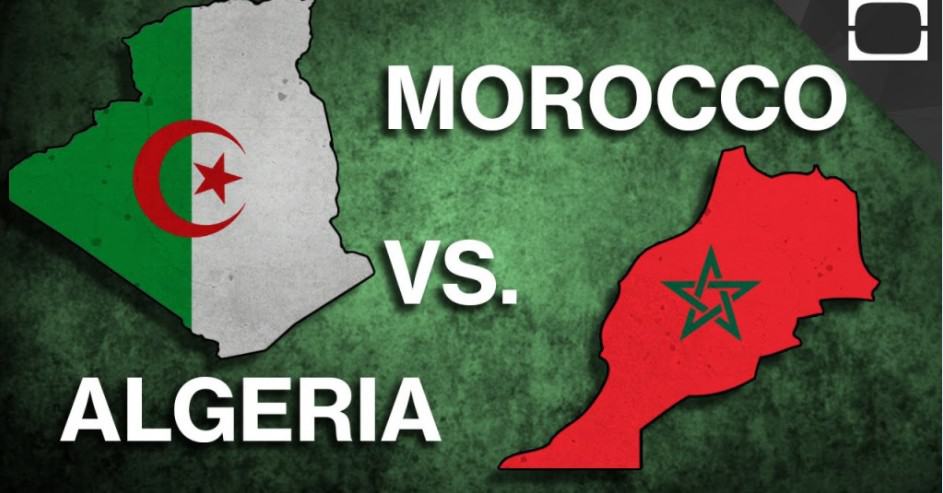Algeria and Morocco broke diplomatic ties this Tuesday due to new disagreements over the Western Sahara issue and accusations of espionage. The decision came from Algeria, which historically supports the Polisario Front, a paramilitary organization that fights the Moroccan government and seeks the independence of Western Sahara. Now it remains to be seen which country will mediate the bilateral dialogue in order to ease frictions.
The Algerian government decided to cut diplomacy with Morocco after alleged “hostile actions” by Moroccan officials on Algerian soil.
In a short speech, these were the words of the Algerian Foreign Minister Ramdane Lamamra: “Algeria has decided to cut diplomatic relations with the Kingdom of Morocco from today (…) The Moroccan kingdom has never stopped its hostile actions against Algeria (…) [but] Algeria will remain firm in its positions on the issue of Western Sahara”.
Little is known so far about the real nature of such “hostile actions”, but there are allegations of espionage and support for illegal movements that oppose the Algerian government.
The Moroccan government is commonly accused of supporting some political movements considered dangerous by Algiers, such as the Movement for the Self-Determination of Kabylia (MAK, in its French acronym) – a group founded in 2001 and that defends the formation of an autonomous republic in the province of Kabylia.
In the year of its foundation, MAK was the protagonist of several protests and political unrest in Kabylia, which is why some of its main leaders were arrested and remain in exile. The movement founded the so-called “Provisional Government of Kabylia”, a self-proclaimed regional government with little relevance to local political reality.
MAK’s main flag is the defense of the Berber ethnic groups which inhabit the province and, according to the movement’s discourse, do not have their interests represented by the central government (that serves the interests of the Arab population).
Despite some episodes of unrest, the group is generally described as a peaceful, non-violent movement.
Another Moroccan-backed movement that is illegal in Algeria is the Rachad, an allegedly “moderate” conservative Islamist organization that advocates the overthrow of the Algerian government through peaceful demonstrations and the establishment of an Islamic democracy.
The group was founded in 2007 and was involved in protests during the Arab Spring. Rachad’s headquarters are in London and the movement appears to have strong links with the British government, planning to serve the international interests of the UK.
These two movements, despite being considered peaceful, are being accused of actively participating in the spreading of fires in northern Algeria. The Algerian government accuses them of causing illegal wildfires to destabilize the country and provoke a social and economic crisis.
The fires started on August 9 and have already killed nearly 100 people, in addition to having destroyed a large area of vegetation and agricultural cultivation. Olive plantations and chicken farms were destroyed, which will have a strong economic impact on the country in the near future.
Interestingly, the fires started precisely in the region of Kabylia and there are indications that they were caused by human action – which leads the Algerian government to suspect an attack led by the MAK.
In light of these facts, the government has toughened its persecution against dissident movements, and this has certainly contributed to the aggravation of tensions with Morocco.
In fact, the Moroccan government does not have a strong interest in supporting such movements, but it does so to retaliate for Algerian support for the Polisario Front, so it is possible that there is direct involvement of Moroccan officials in the fires, which is reason enough for the cutting of diplomatic ties.
Furthermore, it should be noted that Algeria also denounced Morocco’s involvement in alleged espionage activities against Algerian authorities.
Apparently, officials based at the Moroccan embassy would be spying on members of the Algerian government, but obviously there is not much information available on this matter, as it is a sensitive topic and involves intelligence operations.
With this, a tense and very complicated scenario is growing. The escalation of hostilities and the alleged Moroccan involvement in criminal activities that are leading hundreds of Algerians to death is a very serious point and the consequences could be grave.
Indeed, international mediation is needed to prevent the case from taking on any major proportions – perhaps on a military scale. Certainly, there will be Egyptian involvement, as this country has more and more stood out for its goal of expanding its power and consolidating itself as a military and diplomatic authority in North Africa.
However, Egypt is also involved with the Polisario Front, which makes the situation even more complicated for Morocco and tends to make a neutral and impartial dialogue difficult.
Lucas Leiroz, research fellow in international law at the Federal University of Rio de Janeiro.
READ MORE: Taliban give their first ever exclusive TV interview to Greek media.

